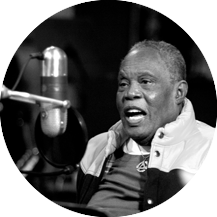They Killed a King Sam Moore
A Tribute song to Martin Luther King Jr.
Jan. 15, 1929 — Apr. 4, 1968
Re-Release April 4, 2021
Tribute Song
They Killed A King
History of a forgotten song – This new recording has been 46 years in the making. It is originally written and recorded by Bobbejaan Schoepen and his friend Mel Turner in the immediate aftermath of the assassination of Dr. Martin Luther King, Jr. on April 4th, 1968.
A song of both regret and hope. Profoundly affected by this seismic event, both men felt compelled to commit their feelings to paper, to convey the deep sadness that Dr. Martin Luther King’s death had prompted within them and across the world.
However this song almost never came to light. For four decades it lay almost forgotten. But in June 2008, during the recording of the last album by Bobbejaan, the idea was born to resurrect the track. Bobbejaan’s son, biographer and manager, Tom Schoepen, and the record producer Firmin Michiels both knew it would make an excellent recording. But the untimely passing of the artist meant that this endeavour would have to wait.
Bring this song back to life. Five years later Tom and Firmin reunited to complete the project. During his career, Firmin had worked at the Royal Studios in Memphis Tennessee. Through his connections with Lester Snell both men began to gather a group of outstanding musicians to bring this song to life.
Sam Moore. Via Lester Snell, the renowned arranger and keyboard player, the soul legend Sam Moore was recruited to provide his own inimitable voice to the track. Not only is Sam one of the greatest soul voices of all time but he was also a close friend of Dr. King and has contributed to a slight adaptation of the original words.
Royal Studios Memphis. Recorded in Memphis over the weekend of Martin Luther King Day, under the auspices of engineer Lawrence ‘Boo’ Mitchell – son of Royal Studios founder Willie Mitchell – this soulful song captures the spirit of the times it was written in. As Lawrence Mitchell stated: ‘This song is so, so strong, it could have been recorded in the 60s or 70s in Stax Memphis by the best soul artists’.
